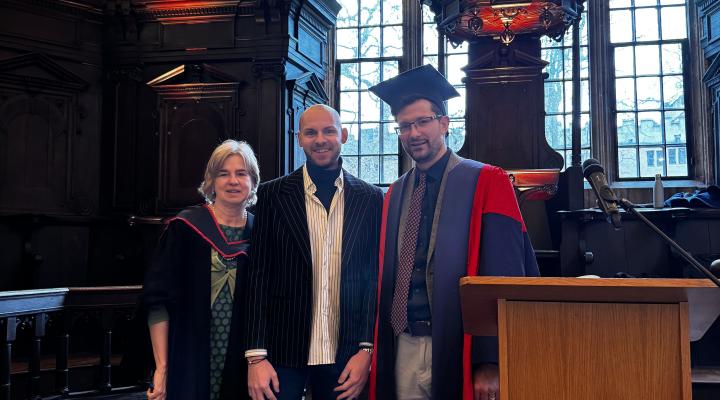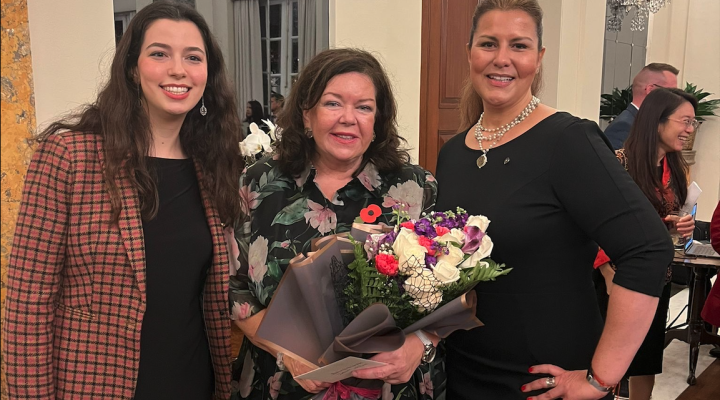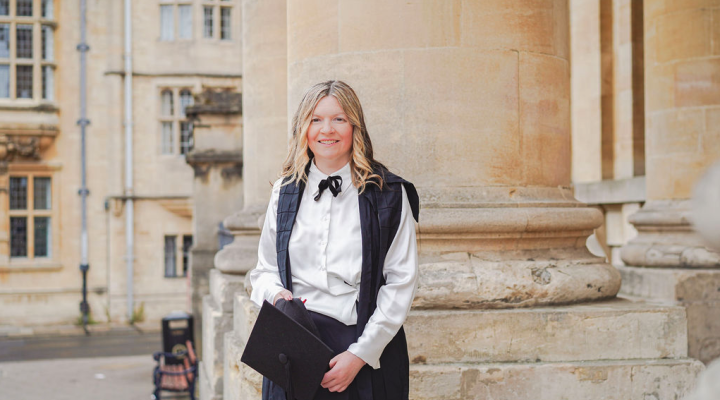My first day of the Executive Diploma in Organisational Leadership started with a coffee I did not want or need.
When I entered the Oxford Saïd Business School café on February 9, 2022, the atmosphere hummed with business leaders from Dubai, Nigeria, New York, Beirut, Washington DC, Brazil, Belgium, South Africa, and dozens more. Their snippets of conversation, exchanges about backgrounds and shared connections, left me rattled – an unwitting American tourist misdirected to Pamplona’s Calle de Santo Domingo on the morning of the bulls’ release.
Coming out of the pandemic, for the preceding two years, my professional interactions had taken place through Zoom or Teams, and I had all but lost my talent for social improvisation. In my moment of panic, I went to the familiar – a ceramic mug, black coffee, my phone, an unoccupied corner.
What had I gotten myself into?
In a time of unprecedented global disruption, I had found a routine and simple practices – grown my consulting business by 200% in two years, found a way to manage my virtual team, kept my two young children in school, and renewed my enjoyment in outdoor adventures. Why could I not find simple satisfaction in these achievements? Why travel halfway around the world to have sixty-six leaders and strangers wreak havoc on a precariously curated Covid identity?
The answer lay in our final of four sessions: The Resilient Leader. We studied and debated the characteristics of organisations and executives that not only survive times of upheaval and global turmoil but flourish. Those qualities include having specific, proven routines and unpretentious operational guidelines. Check and check. They also include the ability to act creatively and extemporize in the moment. Routines and improvision – organisationally and personally – often require opposing developmental paths. They often require choosing the uncomfortable and the unknown. A coffee that you do not want. A turn down an unknown street. Entering a room full of accomplished strangers – even if you hide in the corner.
There is another distinguishing mark of resilient companies and leaders: their enduring partnerships and relationships. It is now just over eight months since I walked into that room filled with the people who would become my classmates. Three weeks after gulping down that superfluous beverage, I had the enormous privilege of the cohort voting me in as one of two class representatives and continue to enjoy serving in the role. Twelve weeks after that, we all met again for our second session, and that is when we unwittingly transformed from classmates to the exceptional, not-alone collective.
We no longer just shared about promotions, strategies, and workplace challenges. We engaged in 1am conversations at the Oxford Retreat about finding meaning and purpose, shared travel adventure photos when apart, ate kebabs at 4am in the rain. We also collectively mourned the loss of each other’s’ loved ones as though they were our own, we grieved together as global conflicts compromised promising futures, and we celebrated new relationships with a gusto traditionally attributable only to overly intrusive families.
For all our ambition to develop new capabilities amid increasing global insecurity, our greatest advantage came with each quiet inspiration, insightful redirection, laughter, or grief experienced with this exceptional group that emerged from isolation with an uncompromised commitment to not go through a moment of it alone.





